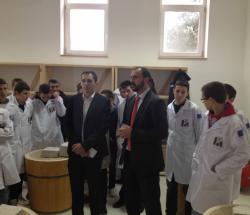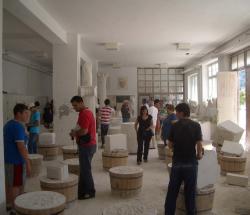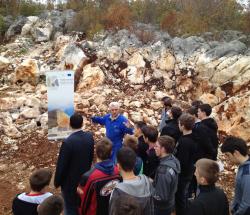| Brief description | Development of entrepreneurship in the sector of stone processing and exploitation in the cross-border region of Herzegovina and Dalmatia. |
|---|---|
| Region | Intra Western Balkan borders |
| Countries | Croatia (HR) and Bosnia and Herzegovina (BiH) |
| Location | HR: Split-Dalmatia, Dubrovnik-.Neretva, Šibenik-Knin and Zadar Counties (cities/municipalities of Split, Trogir, Vrgorac, Pučišća, Ston, Dubrovnik, Benkovac and Imotski)
BiH: West-Herzegovina, Herzegovina-Neretva County-Canton (cities/municipalities of Posušje, Mostar, Široki Brijeg, Međugorje and Jablanica). |
| Type of project partners | Chambers, business associations Local/regional development agencies |
| Size (total budget including EU grants) | Over € 500,000 |
| Main themes | Competitiveness, business and SME development, trade and investment |
| Keywords (Types of Activities) | Education and training Research and studies Institutional building Marketing, promotional activities, awareness campaigns Acquisition of equipment |
| Keywords (Aspects of Good Practice) | Genuine cross-border dimension Genuine cross-border impact Innovative Efficient Good dissemination Good sustainability |




